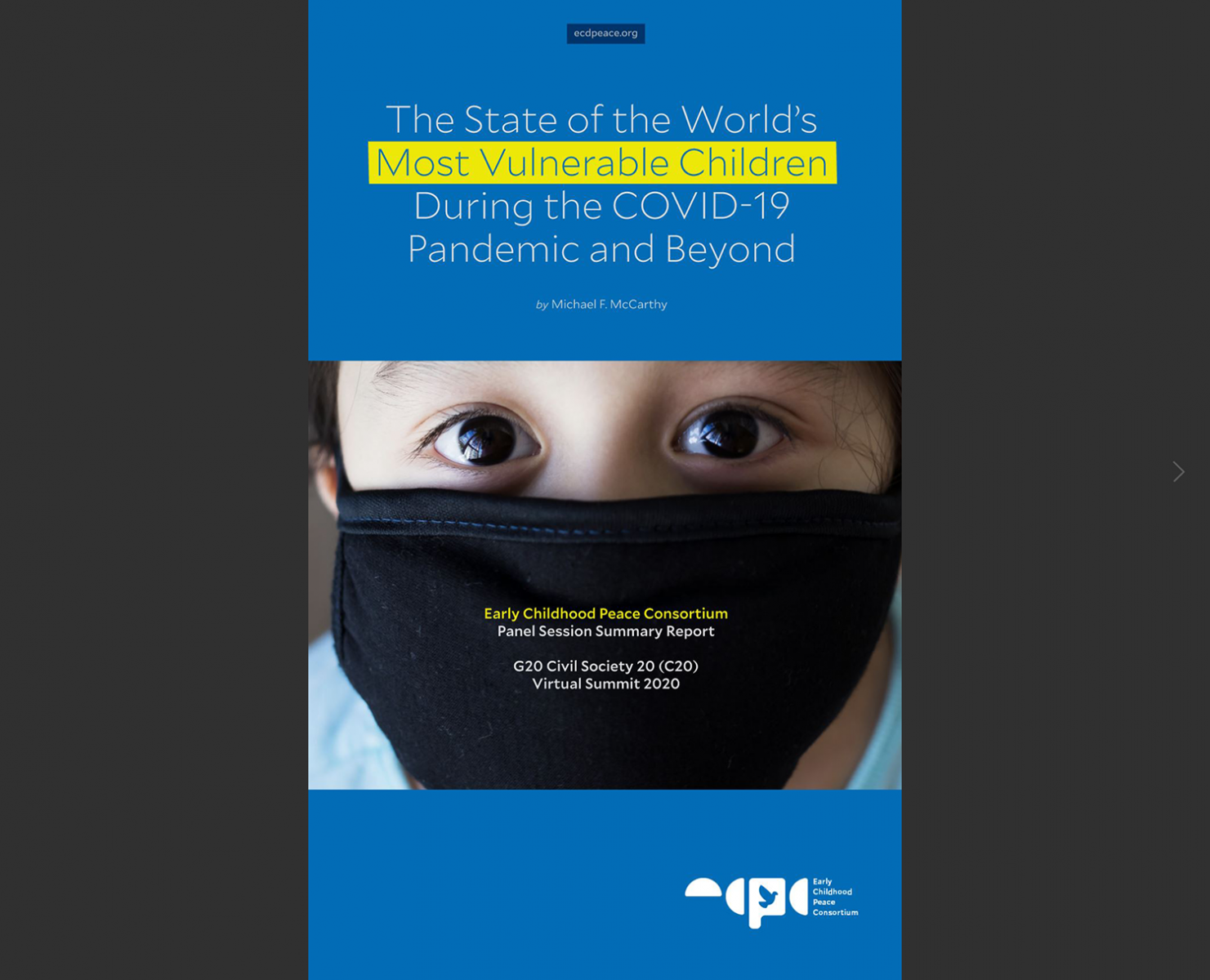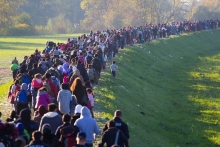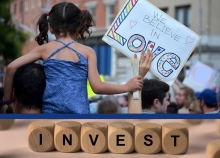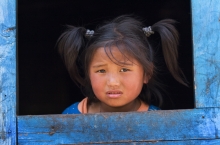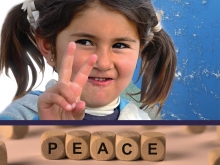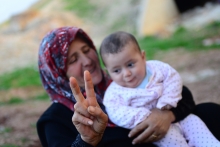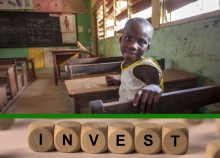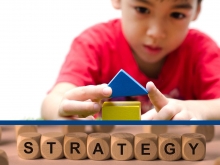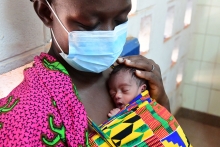The state of the COVID-19 pandemic on the world’s most vulnerable children
Top experts advance the ECPC Global Call to Action in response to the "state of the world’s most vulnerable children during the COVID-19 pandemic and beyond" at the G20 Civil Society (C20) Summit — C20 Saudi Arabia 2020.
Click above to read the fully interactive, downloadable and sharable 21-page ECPC report.
G20 Civil Society 20 (C20) Virtual Summit — C20 Saudi Arabia 2020
The State of the World’s Vulnerable Children During the COVID-19 Pandemic and Beyond
At the G20 Civil Society 20 (C20) Virtual Summit — C20 Saudi Arabia 2020, the Early Childhood Peace Consortium (ECPC), by acceptance, held the live panel session “ECPC Global Call to Action Response to COVID-19 for Children in Fragile and Conflict-affected Settings: The Promise of Early Childhood Development” to a global online audience. The report, “The State of the World’s Most Vulnerable Children During COVID-19 and Beyond” provides a summary account of the C20 Summit ECPC Panel Session.
► READ the 21-page C20 Summit ECPC panel session report: “The State of the COVID-19 Pandemic on the World’s Most Vulnerable Children.
The summit was attended by 40,000 online users and featured 380 speakers from 118 countries who participated in 65 sessions over five days from October 6–10, 2020. The summit was hailed as “The biggest virtual gathering of thousands of civil society leaders and change-makers in the G20 process.”
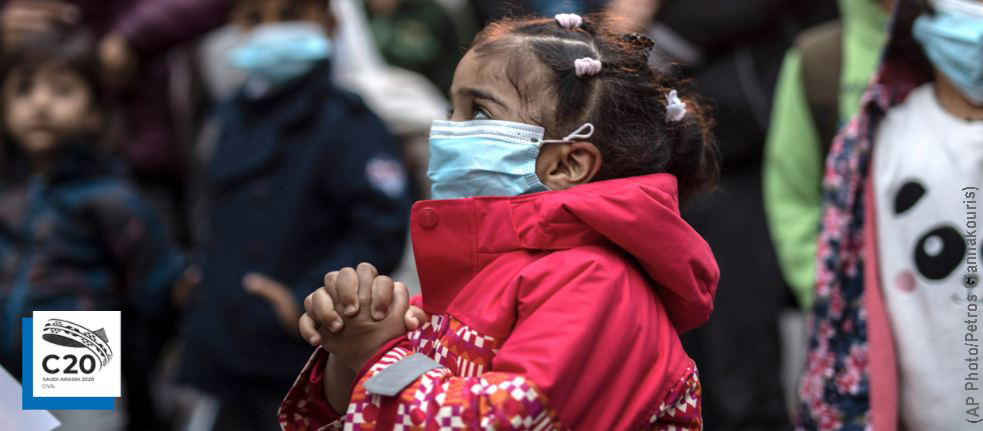
A young migrant girl, wearing a Covid-19 protection mask. (AP Photo/Petros Giannakouris)
ECPC Panel Session — “Response to COVID-19 for Children in Fragile and Conflict-affected Settings: The Promise of Early Childhood Development
COVID-19: A pandemic-induced humanitarian crisis
Millions of children are trapped in situations of violent conflict, military occupation, and displacement. The COVID-19 crisis is exacerbating their already dire situation, further violating their rights. Science shows that adversity has a detrimental effect on the physical and emotional development of young children. It, also, heralds a new era, asserting that Early Childhood Development is a vital opportunity to promote a Culture of Peace, building a strong foundation for resilience, social justice, and social cohesion.
The COVID-19 pandemic is exacerbating existing crises around the world and where inequalities are becoming starkly evident, further violating the rights of vulnerable children. The pandemic severely affects young children’s physical and mental health, their social and emotional development, safety, economic security, particularly in conflict-affected and fragile settings leading to an unprecedented crisis of care and learning.
The ECPC panel of global experts
The ECPC panel consisted of a multidisciplinary team of six experts in the field of Early Childhood Development (ECD), representing:
- Rima Salah, PhD — ECPC Chairperson, Assistant Clinical Professor in the Yale Child Study Center, former Assistant Secretary-General of the United Nations, former Deputy Executive Director of UNICEF, and former member of the United Nations High-Level Independent Panel on Peace Operations
- James F. Leckman, MD, PhD — Neison Harris Professor of Child Psychiatry, Psychiatry, Pediatrics, and Psychology in the Yale Child Study Center
- Siobhán Fitzpatrick, CBE — Former Chief Executive Officer, Early Years-the organisation for young children (N. Ireland)
- Nada Elattar, MPH — Early Childhood Development Specialist-Emergencies, UNICEF
- Ghassan Issa, MD — Co-founder and the General Coordinator of an Arab regional non-governmental organization, Director of ANECD-the Arab Network for Early Childhood Development (Lebanon)
- Ana Tenorio, MA, MS— Global Technical Director, Education, TSO, World Vision International (Representing ECPC Advisory Board member, Dilshan Manoj Annaraj, World Vision International)
The panel demonstrated by Science and Practice the vital importance of Early Childhood Development (ECD) strategies and services, to mitigate the immediate and long-term impact of the COVID-19 pandemic and its indirect consequences on the most vulnerable young children and families. Supporting and empowering them today can not only interrupt cycles of racial injustice and inequality but build a strong foundation for peace and security, resilience, social justice, and social cohesion.
“Global inaction on ECD today will hold high costs for the Nations of tomorrow”. — UNICEF
The panel emphasized that the early moments of life offer an unparalleled opportunity to build a fair and sustainable future for all. Investing in the early years of life is the right thing to do and it is the smart thing to do. The burden and cost of inaction are high, yet the return on investment is clear and evidenced.
Panel objectives
The panel discussion underscored the urgent need to:
- Reaffirm commitment to the Human Rights and the Rights of Children, particularly the young ones, for a good start in life, so that they grow up to realize their full potential, in peace and with dignity;
- Uphold the commitment made in the 2018 G20 Initiative for Early Childhood Development (G20, 2018);
- Protect and prioritize investment in Early Childhood Development programs and services in the global pandemic response and recovery efforts;
- Ensure that gender equality, inclusion, and empowerment of children/parents/families and communities be at the center of COVID-19 response and recovery efforts; and
- Entreat governments and policymakers to implement effective ECD policies and inclusive practices, ensuring Universal access to ECD services.
“Governments must prioritize equal access, from early learning to lifelong education. Neuroscience tells us that pre-school education changes the lives of individuals and brings enormous benefits to communities and societies. So, when the richest children are seven times more likely than the poorest to attend pre-school, it is no surprise that inequality is inter-generational.” - UN Secretary-General António Guterres (2020, July 18)
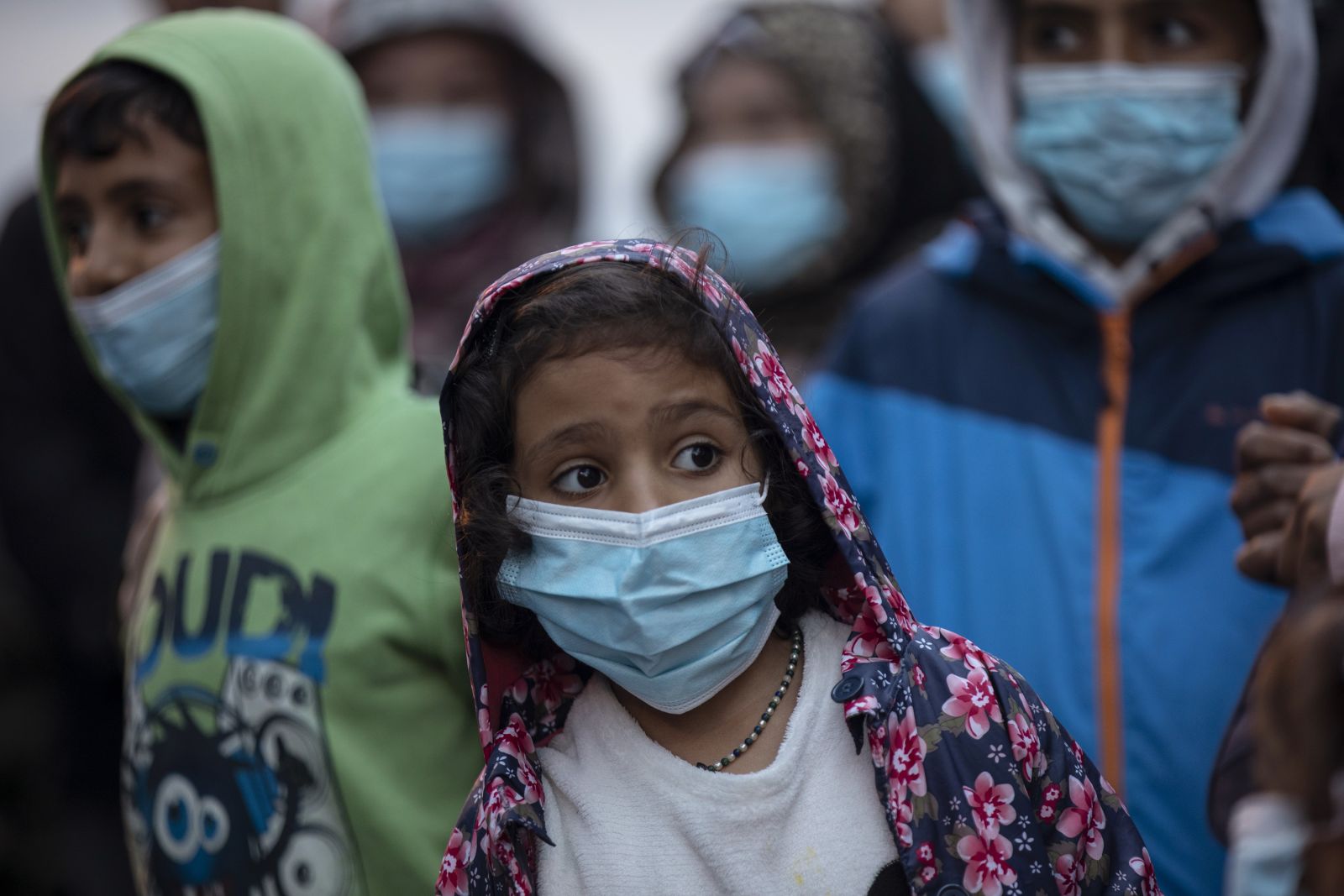
Young children, wearing Covid-19 protection masks, are being relocated from the overcrowded refugee Moria camp to the Greek mainland, May 2020. (AP Photo/Petros Giannakouris)
Science heralds a new era
What does science teach us about the importance of ECD in the context of the COVID-19 pandemic?
Panelist, Dr. James F. Leckman, Neison Harris Professor of Child Psychiatry, Psychiatry, Pediatrics, and Psychology, a distinguished 40-year faculty member in the Yale Child Study Center who has ongoing ECD research projects across the Middle East, South East Asia, Latin America, and Europe, says that there is no question that there are and will be many life-threatening adverse consequences of the pandemic for millions of children across the globe, especially the most vulnerable. “Children are, in many ways, the hidden victims of the pandemic.”
“The science heralds a new era, asserting that ECD is a vital opportunity for building a sustainable future fit for the world’s children and empowering them through promoting The Culture of Peace, as called for by the United Nations” (UN Resolution A/RES/74/21). ~Rima Salah, PhD, ECPC Chair
The good news, he says, is that developmental neuroscience has led to a revolutionary shift in assessing the interplay between genetic alterations in the developing brain and early life experiences, both positive and negative. Neuroscience and other multiple disciplines, such as epigenetics, psychology, and economics, indicate how ECD services can prompt members of high-risk groups to rebuild trust, reconnect, and develop long-lasting resilience.
Video recording—ECPC panel session, G20 Civil Society 20 (C20) Virtual Summit 2020
“Response to COVID-19 for Children in Fragile and Conflict-affected Settings: The Promise of Early Childhood Development”
Video appearances by the panel of ECPC global experts:
- Rima Salah, PhD—“The state of the COVID-19 pandemic on the world’s most vulnerable children
- James F. Leckman, MD, PhD—“Pathways to a More Peaceful World: The Transformative Power of Children and Families
- Siobhán Fitzpatrick, CBE—“Empowering Families and Communities Through Quality Early Childhood Services
- Nada Elattar, MPH—“Supporting Our Caregivers Through Home-based Services and Resources
- Ghassan Issa, MD—“COVID-19s Impact on Young Children in the Middle East
- Ana Tenorio, MA, MS—“The Importance of Faith-based Leaders and Educating Our Young Children
The State of the World’s Most Vulnerable Children During COVID-19 and Beyond
Following are highlights from the six panelists’ presentations.
01 Presentation—”The State of the COVID-19 Pandemic on the World’s Most Vulnerable Children
by Rima Salah, PhD

Dr. Salah commenced the panel session by underscoring that millions of children are at risk of not reaching their developmental potential, especially now due to the short-term and projected long-term detrimental impact of the COVID-19 pandemic on their wellbeing.
“The pandemic severely affects young children’s physical and mental health, their social and emotional development, safety, economic security, and access to education and recreational activities, which [has] lead to an unprecedented crisis of care and learning.”
She asserted that because children living in conflict zones are at high risk, regarding under-five mortality rates and displacement, the international community must play a major role in reducing the long- and short-term detrimental effects of the pandemic on these most vulnerable children.
She called on the G20 and other world leaders to honor the commitments they made in the G20 Initiative for Early Childhood Development (2018) to invest in early childhood development (ECD) programs and services. She affirmed, in doing so, we pave the way toward building “… a Culture of Peace at home, in the community and society”.
02 Presentation—“Pathways to a More Peaceful World: The Transformative Power of Children and Families
by James F. Leckman, MD, PhD

Dr. Leckman affirmed that human development is in part influenced by the context of the environment within which one lives. The early years (preconception to age 8), he explained, are central for the healthy development of a child, dependent upon adequate nurturance provided by parents and caregivers. He emphasized that a young child’s healthy development depends upon the child receiving from parents and caregivers, “nurturing care” (high-quality health care, nutrition, education, child protection, and social protection).
Today, many of the issues that families and children face, he added, are “compounded by situations of war, conflict, and migration”. Dr. Leckman asserted that the field of early childhood development has more work to do, calling on the international community “to make sure that every child receives adequate nurturing care.”
“We need to work in conjunction with communities, governments, non-governmental organizations — all of us — need to work together to ensure that all children are living in safe locations and that they are receiving adequate nutrition and loving care.”
He emphasized that “we need to take action to make our world a better place for our children and for future generations” and that the international community must focus on a “one child at a time” approach.
03 Presentation—“Empowering Families and Communities Through Quality Early Childhood Services
by Siobhán Fitzpatrick, CBE
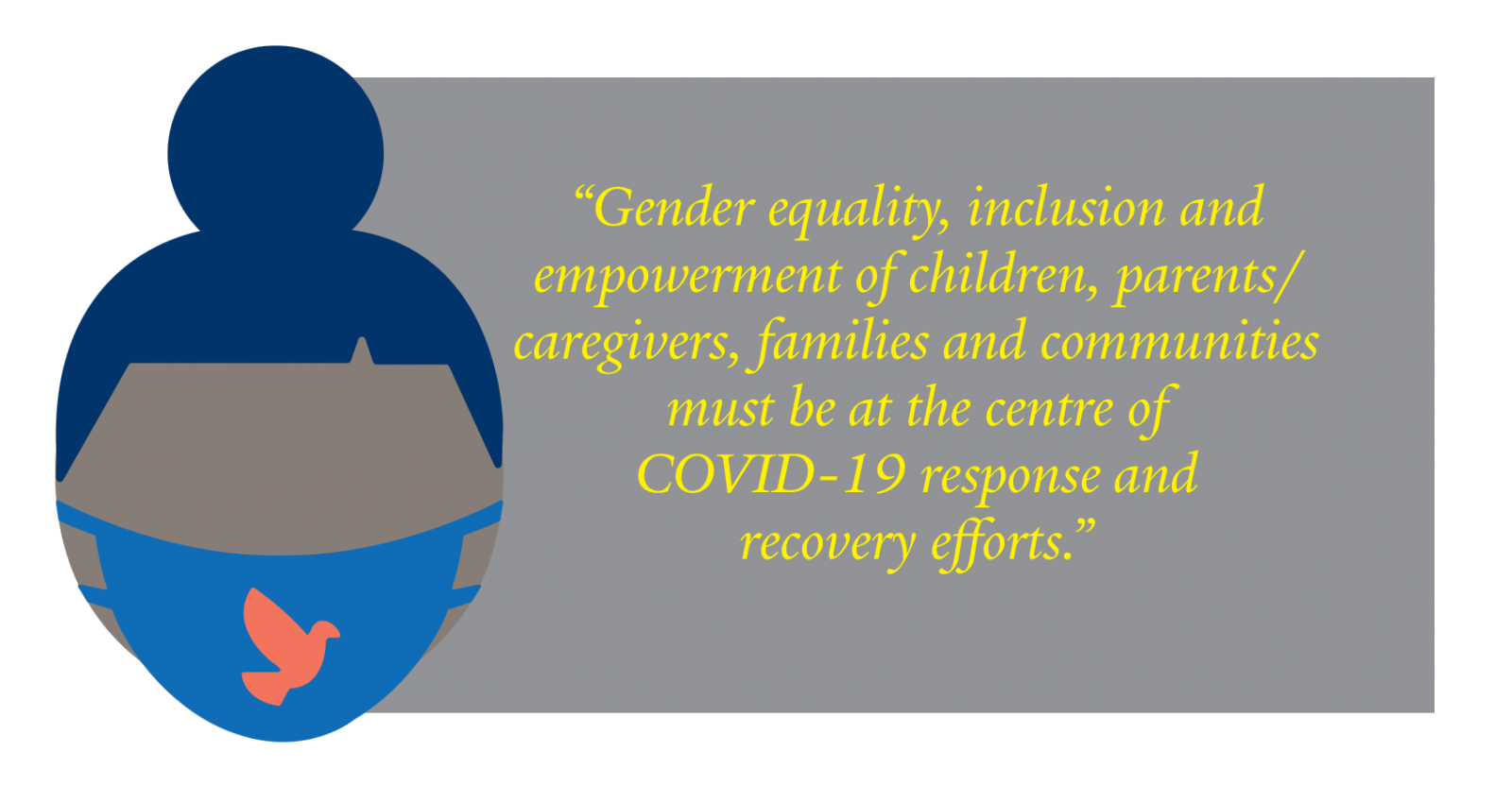
Dr. Fitzpatrick emphasized the positive impact that high-quality early childhood care and education can have on families and communities impacted by both conflict and the COVID-19 pandemic.
She argued that ECD should not be restricted to the sole focus of the child, but the international community must also adopt a “community development perspective” as well (Connolly et al., 2007).
She noted that “Early childhood services operating from this community development perspective can also support and build resilience, promote social cohesion, and build and sustain connections between families and the wider communities,” especially in divided conflict-affected societies (Connolly et al., 2010).
“We need to advocate strongly that gender equality, inclusion, empowerment of children, parents, caregivers, and communities, and integrated early childhood services are at the center of all COVID-19 responses and recovery efforts.”
She concluded by outlining four strategies to help ensure that early childhood services are inclusive, equitable, and can contribute to building more cohesive societies.
04 Presentation — “Supporting Our Caregivers Through Home-based Services and Resources
by Nada Elattar, MPH
Ms. Elattar illustrated the many innovative ways in which UNICEF is supporting families, communities, local governments, and employers during the pandemic (UNICEF, 2020a). As an example, to fill in the gap in ECD services that widened due to the pandemic, UNICEF took quick action to identify, develop and provide early learning materials for access to the household through media, television, radio, and social applications. These resources include effective ways in which parents can talk to their children about the pandemic situation and activities that they can implement in the home to support their children’s learning.
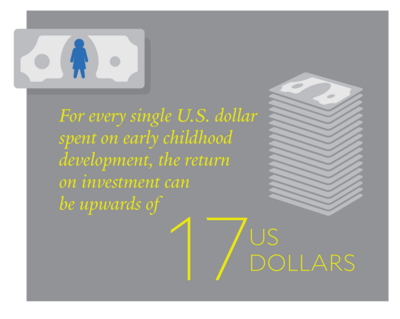
Ms. Elattar also spotlighted how investment in early childhood services can lead to economic growth. Citing the work of economist and Nobel Laureate Dr. James Heckman, she reported that for every single U.S. dollar spent on early childhood development, the return on investment can be upwards of 17 U.S. dollars (see UNICEF, 2020; see also Economic Benefits of Early Childhood Development Investments).
Inaction, Ms. Elattar emphasized, can have devastating consequences on a child’s health and educational growth. Investing in ECD services can lead to a child’s optimal learning and health outcomes, which can in turn reduce healthcare and educational costs, she explained.
“We are not talking about early childhood development as a bonus, or a plus, or an added thing.” Instead, she asserted, “these are fundamental rights of children.” Children have guaranteed rights “to adequate nutrition, to health, to education, learning, to protection, to development… to responsive care, and…play-based opportunities”.
05 Presentation—“COVID-19s Impact on Young Children in the Middle East
by Ghassan Issa, MD
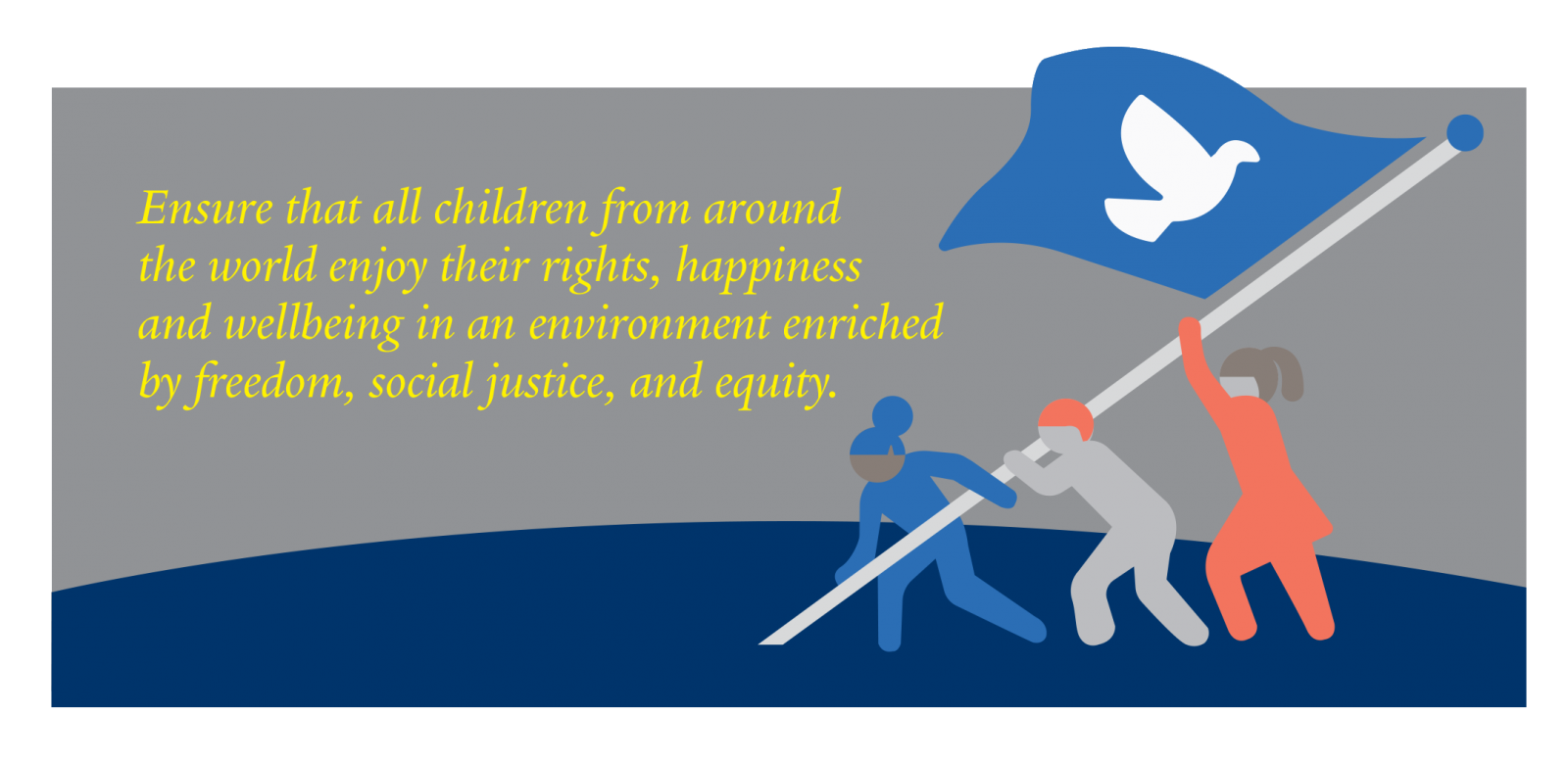
Dr. Issa drew attention to the adverse impact that COVID-19 has had on the political, social, and economic systems in the Middle East. Findings from ANECDs recent fieldwork show that refugees and internally displaced people are suffering especially from “food insecurity, violence, traumatic and post-traumatic mental health disorders”, he said. Unfortunately, these inherited problems impact “the most significant entry point for community social justice, social cohesion, and peacebuilding efforts and consequently, political stability and economic recovery,” he underscored.
He called for increased investment in young children and families to combat these political and economic concerns. He emphasized that this cannot be achieved without “a global solidarity movement among governmental institutions, civil society bodies, academics, activists from different countries, regional and international networks, institutions and UN agencies in the field of early childhood care and development.”
The international community must “ensure that all children in all countries and communities enjoy their rights, happiness, and wellbeing in an enriching environment of freedom, social justice, and equity.”
06 Presentation—“The Importance of Faith-based Leaders and Educating Our Young Children
by Ana Tenorio, MA, MS
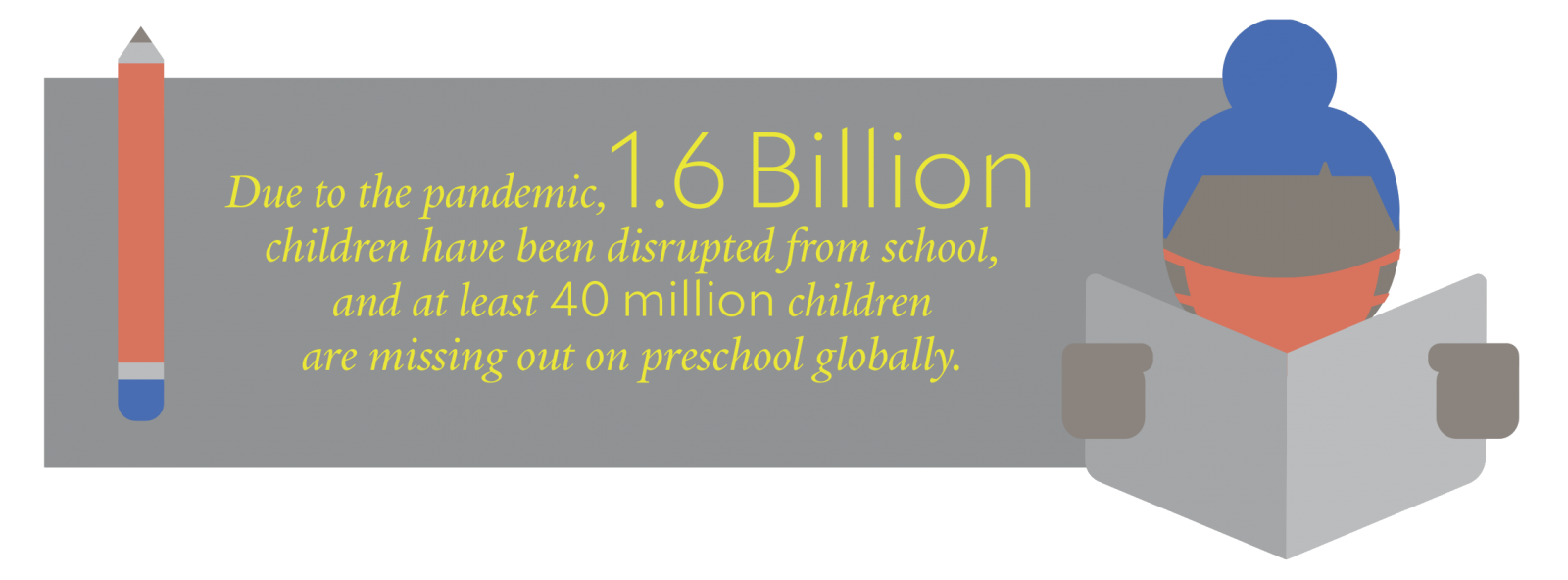
Ms. Tenorio spotlighted the importance of community leaders and networks in helping parents and children better cope during times of crisis. She explained that establishing and using community networks are vital in that they quite often become the last resort for caregivers who urgently need resources and aid, such as healthcare, nutrition, and educational services, which become absent or intermittent.
She underscored the important role of community faith-based leaders in helping families better cope during the COVID-19 pandemic crisis. She reported that nearly 85 percent of the world’s population follow a religious tradition, making faith-based leaders invaluable resources for families (The Pew Forum on Religion & Public Life, 2012).
She reported that nearly 1.6 billion learners are impacted by the COVID-19 pandemic. Of those, nearly 40 million early childhood-aged children are not participating in preschool education (United Nations, 2020). She emphasized the crucial role that early childhood education plays in a child’s development.
The early years, she contended, are when a child’s “capacity to learn, to adapt to change” and build “psychological resilience … are formed.” Missing this vital window, she underscored, makes it more difficult for a child’s brain to get back on track later.
Our global responsibility to champion the rights of the child — is now.
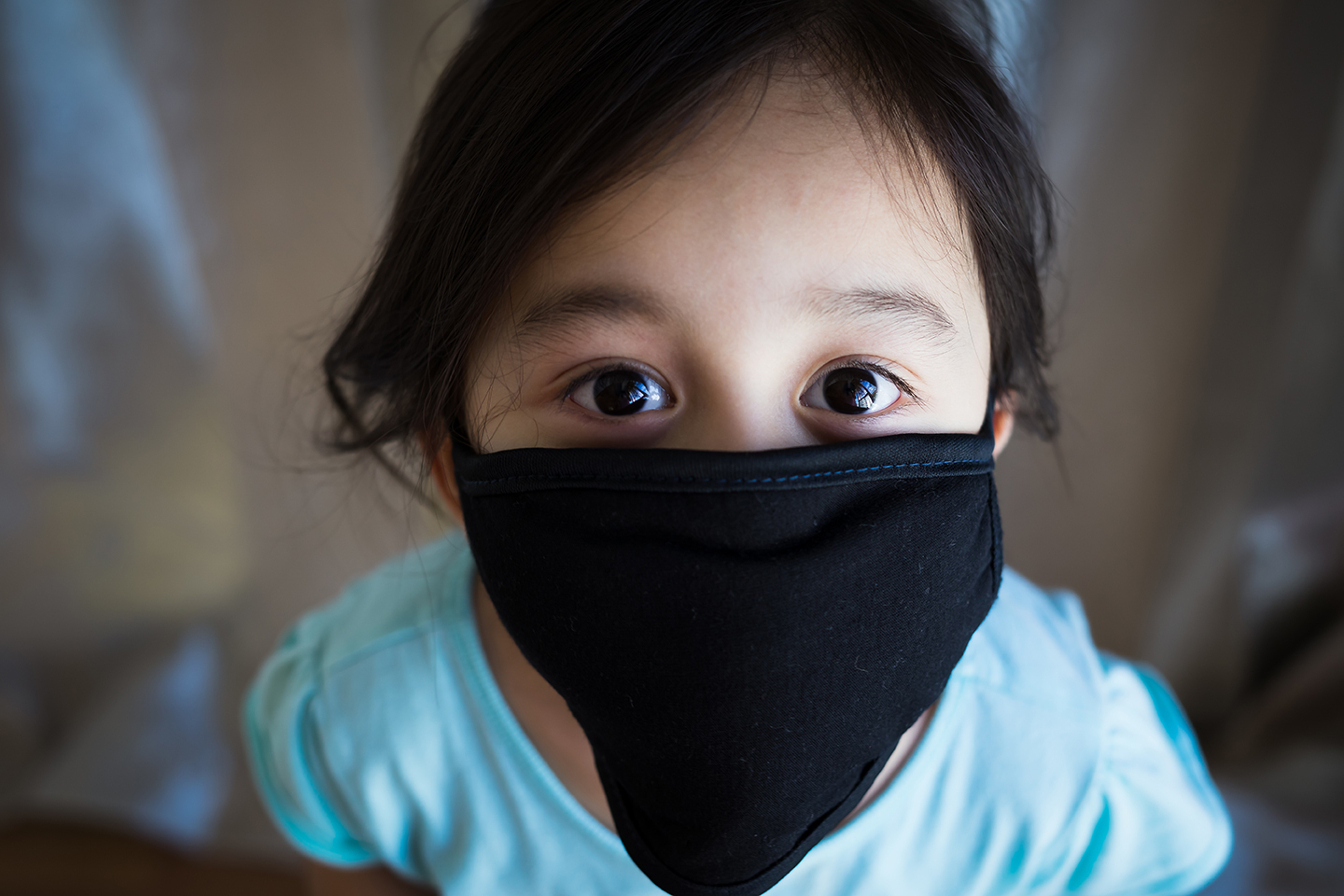
In summary, the purpose of investing in early childhood is not only to acquire economic dividends, but to guarantee that all children globally are guaranteed their basic human rights while simultaneously developing to their fullest potential, enabling them to become contributing and innovative members of inclusive and cohesive societies, agents of change for peace, and inheritors of a just world, from generation to generation.
Take Action
The ECPC report culminates with four recommended approaches that the international community can adopt to help ensure that all children adequately develop to their full potential during and beyond the pandemic. These involve:
- Utilizing a one-child-at-time approach
- Providing for the needs of parents
- Building community partnerships
- Offering additional creative and innovative strategies
► READ the fully interactive, downloadable, and sharable 21-page ECPC report: The State of the COVID-19 Pandemic on the World’s Most Vulnerable Children.
About the G20 Civil Society 20 (C20)
As one of the Group of Twenty’s (G20) eight official engagement groups, the C20 has a diverse coalition of civil leaders spanning across 80 countries who play a prominent role in fostering social and economic justice across the international community and holding our world leaders accountable for protecting the rights of all people. This year’s summit, hosted by C20 Saudi Arabia 2020, drew 40,000 participants and focused on 5 core themes:
- The world’s response and recovery to COVID-19,
- Economic and social justice,
- Sustainable development,
- Protection of human rights as well as the accountability, and
- transparency of governments across the world.
About the Early Childhood Peace Consortium (ECPC)
Where all children are the stars of today and leaders of tomorrow!
The ECPC is a global movement of United Nations agencies, Non-Governmental Organizations, academia, practitioners, and the private sector focused on sharing scientific and practice-based evidence on how investment in early childhood development (ECD) can contribute to sustainable peace, social cohesion, and social justice. We recognize that investing in ECD is a powerful and cost-effective strategy for reducing violence, poverty, and exclusion and for building peaceful societies.
Topics & initiatives
|
|
|
|
|
|
|
|
|
|
|
|
|
|
|
|
JOIN THE CONVERSATION
For breaking news and to stay connected, follow us on social media. Sign up to get our E-News delivered straight to your inbox.



